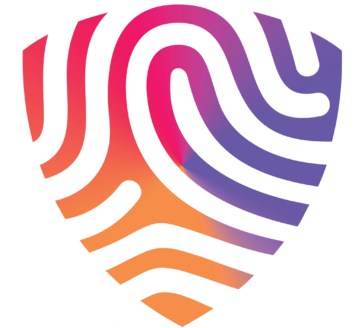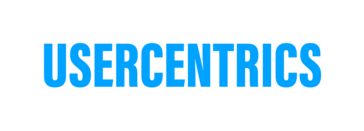- AdOpt is a tool for managing cookies and consent compliance on websites, offering features such as a customizable consent banner, automatic blocking, multilingual support, and a policy/document generator.
- Users frequently mention the ease of use and implementation of AdOpt, its intuitive design, the quick setup, and the responsive customer support.
- Reviewers mentioned the payment aspect being in U,s. dollars as a downside, along with a desire for more customization options for the consent banner and more advanced analytics features.
Best Cookie Tracking Software
Featured Cookie Tracking Software At A Glance
G2 takes pride in showing unbiased reviews on user satisfaction in our ratings and reports. We do not allow paid placements in any of our ratings, rankings, or reports. Learn about our scoring methodologies.
A weekly snapshot of rising stars, new launches, and what everyone's buzzing about.
- Overview
- Pros and Cons
- User Satisfaction
- Seller Details
AdOpt’s Cookie Banner is a type of Consent Management Platform (CMP) solution designed to help businesses comply with various privacy regulations by managing user consents for cookies and tracking tec
- CEO
- Diretor
- Marketing and Advertising
- Information Technology and Services
- 81% Small-Business
- 16% Mid-Market
- AdOpt is a tool for managing cookies and consent compliance on websites, offering features such as a customizable consent banner, automatic blocking, multilingual support, and a policy/document generator.
- Users frequently mention the ease of use and implementation of AdOpt, its intuitive design, the quick setup, and the responsive customer support.
- Reviewers mentioned the payment aspect being in U,s. dollars as a downside, along with a desire for more customization options for the consent banner and more advanced analytics features.
- Overview
- Pros and Cons
- User Satisfaction
- Seller Details
Privacy leaders simplify and automate their privacy programs with the TrustArc Privacy Management Platform. This single platform experience is delivered through its unique combination of privacy frame
- Information Technology and Services
- Computer Software
- 47% Enterprise
- 39% Mid-Market
- TrustArc is a software platform designed to manage mapping, data inventory, risks, and compliance issues related to privacy regulations such as GDPR, CCPA, and ISO 27701.
- Reviewers like TrustArc's intuitive interface, automation workflows, and comprehensive compliance management tools, with many praising its centralized evidence repository, workflow automation, and responsive customer support.
- Reviewers experienced challenges with the platform's complexity for new users, occasional performance lags, limited customization options in reports, and issues with the setup process, as well as concerns about the cost for smaller organizations.
12,746 Twitter followers
- Overview
- Pros and Cons
- User Satisfaction
- Seller Details
Enforce Cookie Consent. Deliver Trust & Transparency. BigID empowers you to automate cookie consent across regions with customizable banners, dynamic tracking controls, and built-in support for gl
- 86% Small-Business
- 3% Mid-Market
2,768 Twitter followers
- Overview
- Pros and Cons
- User Satisfaction
- Seller Details
CookieScript is a fully-featured Consent Management Platform. All the tools you need to make your website comply with the latest privacy regulations, like GDPR, CCPA, LGPD, CNIL. All in one place. Ava
- CEO
- Director
- Marketing and Advertising
- Computer Software
- 85% Small-Business
- 12% Mid-Market
- CookieScript is a consent management solution that offers GDPR compliance, automatic cookie scanning, and banner customization options.
- Reviewers appreciate the ease of setup, user-friendly interface, and the flexibility of banner customization options, along with its strong GDPR compliance and reliable automatic cookie scanning.
- Reviewers experienced issues with some advanced features being less intuitive, limitations in reporting options, and occasional slow interface when loading large sites or running initial cookie scans.
100 Twitter followers
- Overview
- Pros and Cons
- User Satisfaction
- Seller Details
CookieYes is a market-leading consent management platform (CMP), trusted by over 1.4 million websites worldwide. We help businesses comply with data privacy regulations such as the GDPR, CCPA, LGPD, P
- Founder
- Owner
- Marketing and Advertising
- Computer Software
- 86% Small-Business
- 12% Mid-Market
- CookieYes is a tool designed to simplify consent management and ensure compliance with privacy laws, offering features such as cookie categorization, policy generation, and integration with various platforms.
- Users frequently mention the ease of use, robust capabilities, and exceptional customer support, highlighting the quick response times, helpful guidance, and the tool's ability to handle technical questions and issues efficiently.
- Reviewers noted some drawbacks such as the requirement to provide credit card information before accessing the demo version, the automatic renewal system lacking transparency, and the struggle to auto-detect and categorize common cookies correctly, which can make manual auditing time-consuming and error-prone.
162 Twitter followers
- Overview
- Pros and Cons
- User Satisfaction
- Seller Details
Usercentrics Cookiebot CMP is a powerful, easy-to-use solution for achieving website compliance with global data privacy laws. Built on patented scanning technology, Usercentrics Cookiebot CMP automat
- CEO
- Owner
- Marketing and Advertising
- Computer Software
- 70% Small-Business
- 22% Mid-Market
- Cookiebot is a platform that provides a clear and automated way to ensure compliance with data protection regulations, with features such as customizable consent banners and automated monthly scanning for cookies and trackers.
- Reviewers like the ease of implementation and use, the ability to customize the consent banner, the integration with Google Tag Manager, and the reliable customer support.
- Users mentioned issues with the dashboard interface being less intuitive when managing multiple domains, the lack of a typed or first party API, the difficulty in categorizing cookies, and the increase in pricing.
639 Twitter followers
- Overview
- Pros and Cons
- User Satisfaction
- Seller Details
Usercentrics is a global leader in Consent Management Platforms (CMPs), empowering organizations to achieve privacy compliance while maintaining marketing performance and building lasting customer tru
- CEO
- Computer Software
- Marketing and Advertising
- 43% Small-Business
- 38% Mid-Market
- Usercentrics is a consent management platform that provides granular control over user consent, ensuring compliance with GDPR, ePrivacy, and other privacy regulations.
- Users frequently mention the ease of use, the helpful dashboard, the efficient data processing services, the regular scans for premium users, and the excellent handling of cookies and compliance simplification.
- Users experienced issues with the accuracy of scan results, the complexity of initial setup and configuration, the high price compared to service value, the need for manual application of updates, and slow customer support.
639 Twitter followers
- Overview
- Pros and Cons
- User Satisfaction
- Seller Details
Axeptio | GDPR Cookie Banner - An Immersive and Premium Consent Experience Axeptio is a powerful Consent Management Platform (CMP) that keeps your website compliant with global privacy laws, from
- CEO
- Information Technology and Services
- Apparel & Fashion
- 64% Small-Business
- 27% Mid-Market
- Axeptio is a cookies management platform that aids in maintaining compliance with RGPD standards and offers the ability to create multiple cookie banners.
- Reviewers frequently mention the platform's ease of use, valuable performance and analytics tools, and the exceptional support and follow-up received from the team.
- Reviewers noted that the search feature for different widgets could be optimized, the platform's user experience could be more intuitive, and the process of making changes in the back office when managing multiple websites can be time-consuming.
551 Twitter followers
- Overview
- Pros and Cons
- User Satisfaction
- Seller Details
Securiti is the pioneer of the DataAI Command Center, a centralized platform that enables the safe use of data and GenAI. It provides unified data intelligence, controls and orchestration across hybri
- Computer Software
- Retail
- 63% Enterprise
- 14% Small-Business
- Securiti is a platform that integrates into existing infrastructure to improve user experience and data and cyber security.
- Reviewers frequently mention the platform's ease of use, robust data intelligence capabilities, and exceptional customer support, including personal relationships with knowledgeable representatives.
- Users experienced issues with the platform's data remediation side, the automation of data mapping, and difficulties with implementation and integration, as well as a steep learning curve for new users.
51,712 Twitter followers
- Overview
- Pros and Cons
- User Satisfaction
- Seller Details
Stop sweating privacy—Osano’s got your back. Osano is the all-in-one data-privacy platform that turns compliance from a headache into a strategic advantage. One line of JavaScript drops a powerhous
- Computer Software
- Marketing and Advertising
- 54% Mid-Market
- 35% Small-Business
- Osano is a compliance management tool that automates privacy and data governance tasks, enabling organizations to efficiently handle incoming requests and maintain compliance without the need for extensive resources.
- Reviewers like the ease of setup, the intuitive user interface, the efficient handling of permissions for Hubspot integration, and the ability to manage cookie consents and Data Subject Access Requests (DSARs) across multiple platforms in different countries.
- Users experienced challenges with the initial data discovery feature, the simplicity of the tool being a hindrance for larger corporations needing more detailed workflows, issues with cookie configurations, and slow support response times for non-US based companies.
1,525 Twitter followers
- Overview
- Pros and Cons
- User Satisfaction
- Seller Details
iubenda is a Consent Management Platform (CMP) that helps businesses generate legal policies, manage user consent, and comply with international data protection requirements. It is designed for organi
- 70% Small-Business
- 15% Mid-Market
3,136 Twitter followers
- Overview
- Pros and Cons
- User Satisfaction
- Seller Details
Ketch is redefining responsible data use for the AI era. The Ketch Platform helps brands collect, control, and activate clean, permissioned, AI-ready and privacy-safe data across every device, sys
- Financial Services
- Retail
- 50% Mid-Market
- 29% Enterprise
- Ketch is a privacy management platform that provides consent management and data request handling across multiple platforms.
- Reviewers frequently mention the ease of implementation, the quality of customer support, and the platform's ability to seamlessly integrate with other systems.
- Users experienced issues with the user interface being difficult to navigate, certain elements requiring manual setting, and some confusion around customizing the consent banner.
6,858 Twitter followers
- Overview
- Pros and Cons
- User Satisfaction
- Seller Details
The highest-rated data privacy & security platform on G2, MineOS brings a people-centric approach to data governance to create an end-to-end single source of truth for data that rallies everyone w
- Product Manager
- Computer Software
- Information Technology and Services
- 49% Mid-Market
- 29% Small-Business
- MineOS is a data privacy and mapping tool that centralizes and automates the data deletion process, aiding in ISO and SOC 2 compliance requirements.
- Users frequently mention the user-friendly DSR feature, the invaluable AI automations, the excellent customer support, and the tool's ability to streamline data deletion and decrease error rates.
- Reviewers mentioned the lack of immediate notifications for new deletion requests, missing integrations to some services, and the need for improvement in automation and alerting capabilities.
1,360 Twitter followers
- Overview
- Pros and Cons
- User Satisfaction
- Seller Details
OneTrust’s mission is to enable the responsible use of data and AI. Our platform simplifies the collection of data with consent and preferences, automates the governance of data with integrated risk m
- Data Protection Officer
- Information Technology and Services
- Financial Services
- 46% Enterprise
- 39% Mid-Market
6,561 Twitter followers
- Overview
- Pros and Cons
- User Satisfaction
- Seller Details
Acquia Web Governance, formerly known as Monsido, is a leading web governance solution designed to enable organizations to deliver a superior and inclusive user experience across their digital presenc
- Government Administration
- Higher Education
- 50% Mid-Market
- 26% Enterprise
45,178 Twitter followers







